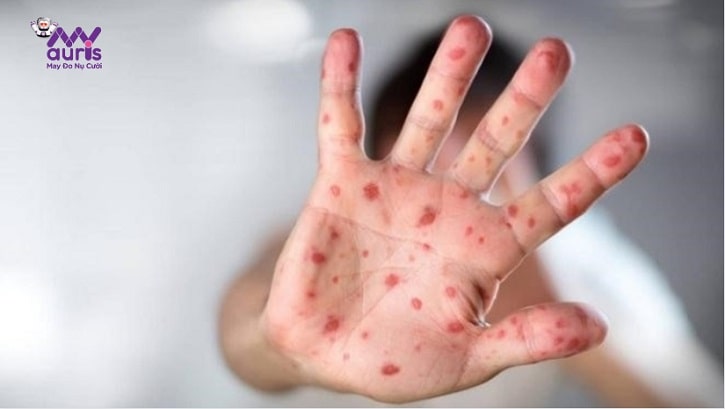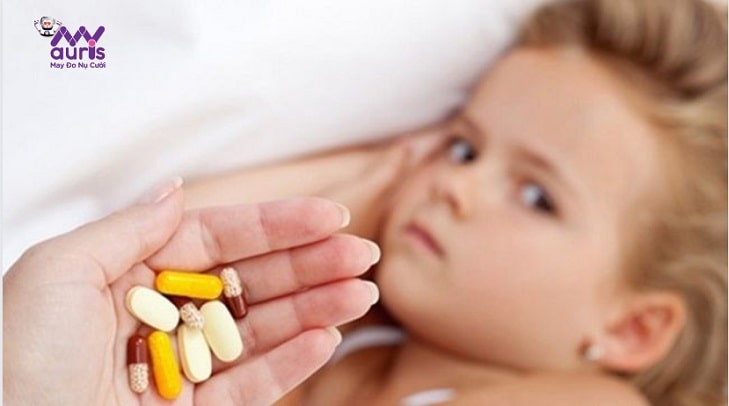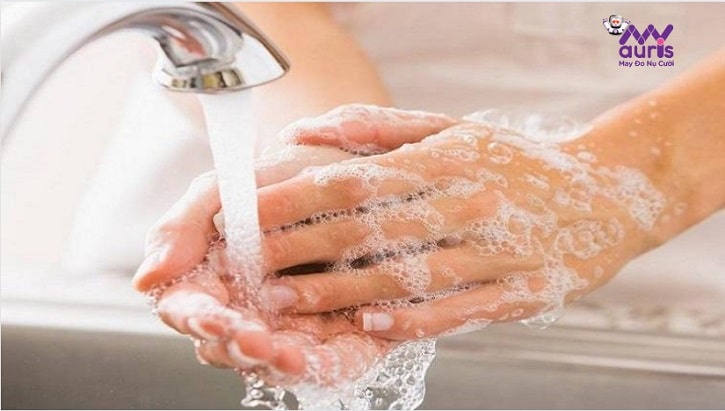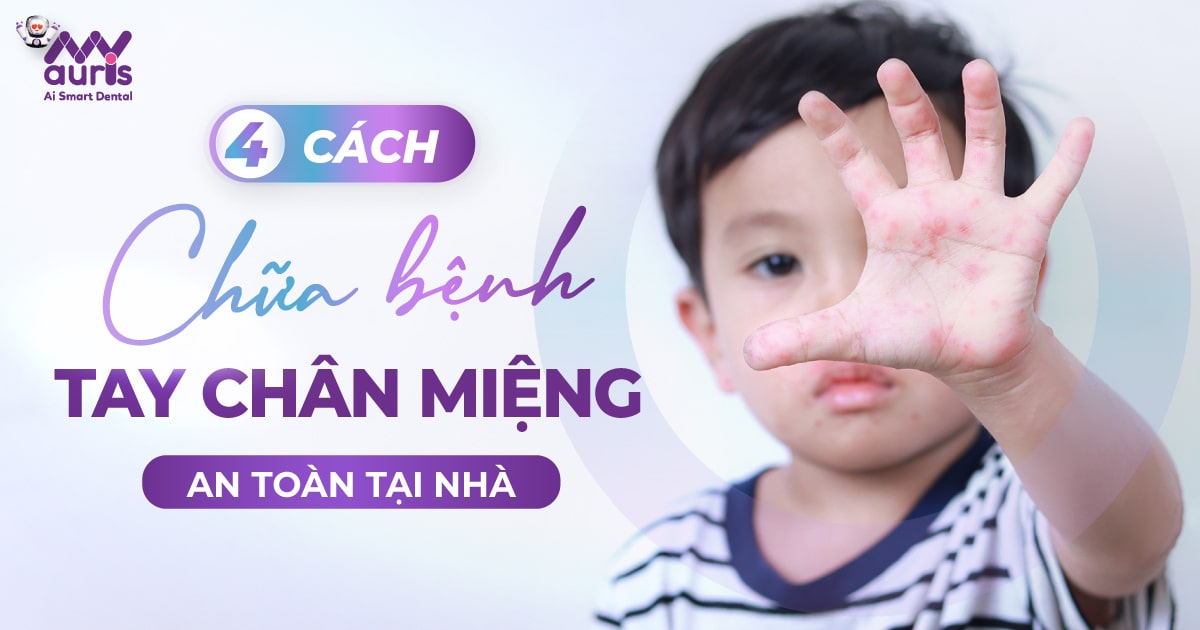Hand, foot, and mouth disease is one of the most common diseases in children, especially children under 5 years old, and has a high risk of causing complications in children under 3 years old. However, early detection and care of children with hand, foot and mouth disease at home can help treat the disease and prevent serious consequences caused by the disease. So how to treat hand, foot and mouth disease at home?
Signs of hand, foot and mouth disease
Hand, foot and mouth disease is a disease benign but if not properly cared for and treated promptly. The disease will cause many dangerous complications such as meningitis, pulmonary edema, etc. and even cause death in children.
Common symptoms of hand, foot and mouth disease in children that parents need to understand:
- Incubation period: Lasts about 3 – 7 days. After the child is exposed to the source of the disease, symptoms do not appear clearly. Children have almost no signs of abnormalities;
- Duration of illness: Lasts about 1 – 2 days. Children will show signs of fever, fatigue or muscle aches, or sore throat, loss of appetite..
- The full illness stage: will usually last about 3 – 10 days. Children often show symptoms typical of western foot diseases including:
- Mouth ulcers: Appear red ulcers and gum blisters with a diameter of 2 – 3 mm. These ulcers appear most often on the oral mucosa and tongue, causing children to increase salivation and mouth pain, especially when swallowing food. This will make children feel unpalatable;
- Many rashes with lots of water discharge appear on the body: These blisters range in size from 2 – 10 mm. They can be protruding on the skin or hidden under the skin and do not cause pain. In addition, blisters may appear on the buttocks and knees on a pink rash.

Instructions for treating hand, foot and mouth disease at home
In treating hand, foot and mouth disease, parents should not be subjective and lack of knowledge will make the disease worse. In case you are unlucky enough to be infected with a virus, you can refer to 4 simple ways to treat hand, foot and mouth disease at home to effectively and reduce the risk of infection.causing illness:
Clean and airy place
Rest a lot and limit contact with others, especially avoid contact with other children because their immune system is weak. Besides, it is necessary to ensure the surrounding environment is clean and change clothes regularly. In particular, wash all kinds of objects and toys with detergents.
At the same time, keep your body clean and wear loose and dry clothes. Furthermore, rinse your mouth with warm salt water or mouthwash to relieve pain to eliminate bacteria. Avoid touching your face, nose and mouth with your hands.
Build a scientific and reasonable diet
When taking care of children with hand, foot and mouth disease, you need to pay attention to nutrition as well as strengthen the body’s resistance to help fight viruses.
- Increase the intake of foods rich in nutrients, especially vitamins and minerals to strengthen the immune system;
- Choose soft, easy-to-eat foods such as soup, porridge, yogurt, etc. to help the patient easily swallow and digest to better recover the body.
- For children, let them eat their favorite foods but ensure they are good for their health and encourage them to eat more;
- Cool food before feeding it to your child. In particular, you should not feed your baby spicy, hot, sour or salty foods because they will cause painful mouth ulcers;
- Maintaining enough water for the body every day is important to avoid dehydration as well as reduce disease symptoms. In addition, drink purified water or supplement unsweetened fruit juices.
Take pain relievers and fever reducers
Use pain relievers and fever reducers such as paracetamol or ibuprofen, each dose will be about 4 – 6 hours apart if the child has a fever above 38 degrees Celsius. However, before using any medicine, you need to consult a specialist, especially for patients with young children.

Take care of damaged skin according to the doctor’s instructions.
Normally, during the skin recovery stage, it will cause itching and the dead skin will peel off. for t formationcells for new skin. At that time, you will need to be careful not to pick off the dead skin or scratch it with your hands, as this will damage the newly formed skin layer and take longer to heal.
For blisters on the skin, you need to pay attention to the following issues:
- Keep clean every day, use a soft cloth and warm water to gently wipe. In particular, do not rub vigorously as this will cause the blisters to burst;
- If blisters burst and form ulcers that cause itching and discomfort. In addition, you can use specialized creams or antiseptic solutions according to the instructions of your treating doctor.
Hand, foot, and mouth disease will spread most strongly in the first weeks of illness, but the virus can still exist for several months. However, cases of hand, foot and mouth disease in children can still recur many times because the child has antibodies against the virus but is very weak. Therefore, parents should not be subjective, after their children have recovered from the disease, they must still actively implement prevention methods.

How to prevent hand, foot and mouth disease safely at home
There is currently no vaccine to prevent hand, foot and mouth disease. However, parents can proactively prevent diseases in their children through the following methods:
- Isolate sick children to avoid spreading the disease to other children;
- Regularly clean, sanitize and disinfect children’s toys and living environment;
- Train children to have the habit of washing their hands with soap, especially before eating and after cleaning;
- When cooking, parents need to pay attention to hygiene issues to ensure food safety and hygiene criteria;
- Restrict children’s exposure to crowded areas;
- Give children nutritious, healthy meals;
- Get enough sleep, balance playtime and study time for children;
In the process of taking care of children with hand, foot and mouth disease, parents should not be subjective and need to monitor children carefully to detectdisease appears early. At the same time, provide appropriate treatment to avoid serious complications later.
By understanding the symptoms and knowing how to treat hand, foot and mouth disease properly at home will help children recover quickly from the disease, avoiding dangerous complications. When there are unusual signs while taking care of the disease at home, parents should immediately notify the doctor for timely support.
Kim Dung





